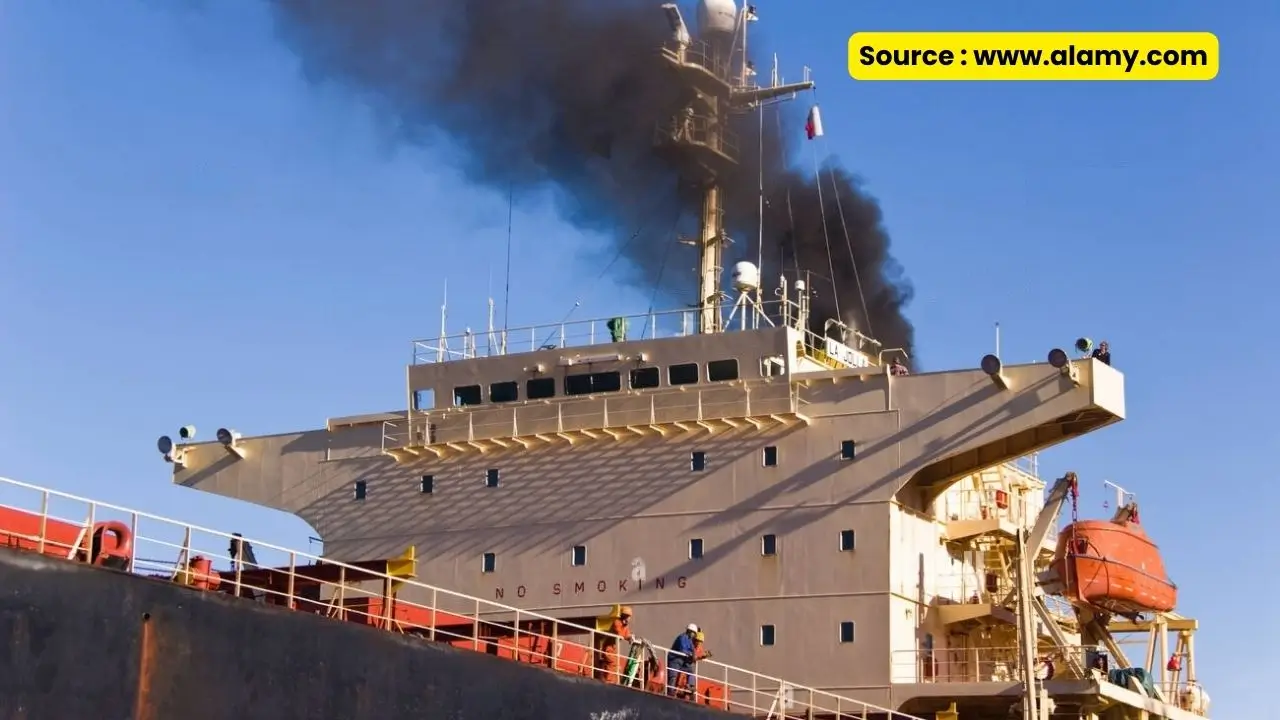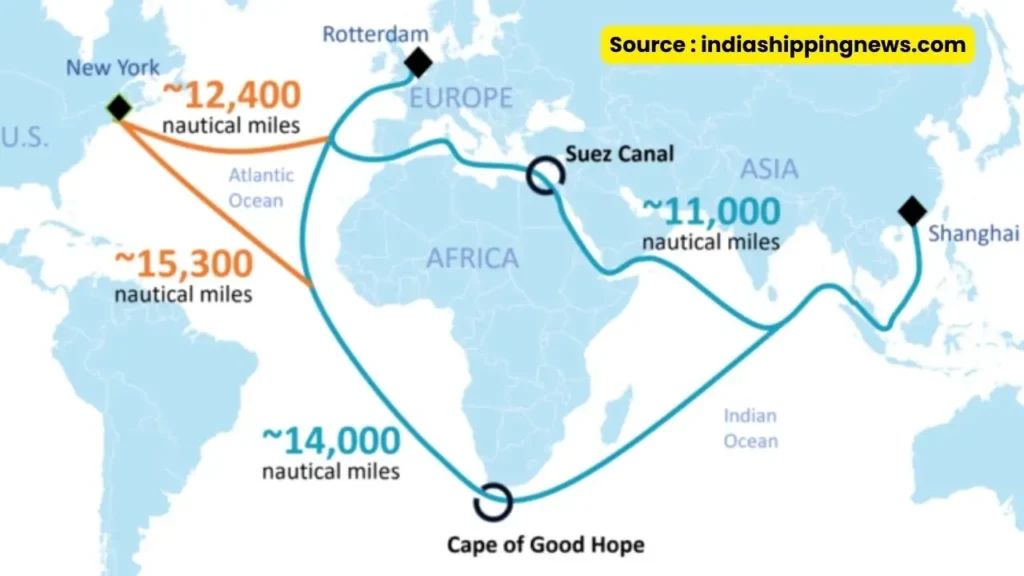Red Sea Reroute: Houthi Attacks Drive Up Carbon Emissions by Millions

1st May 2024
Report : Houthi attacks in Red Sea force ships on longer routes, high carbon emission.
DUBAI, United Arab Emirates (AP) – A dangerous game of cat-and-mouse in the Red Sea is taking a toll on the environment. Houthi rebels in Yemen have launched a series of attacks on commercial shipping, prompting hundreds of vessels to take a much longer route around Africa’s Cape of Good Hope instead of the quicker Suez Canal. This detour, while ensuring safety, comes at a steep price – an estimated 13.6 million tons of additional carbon dioxide (CO2) emissions, equivalent to the pollution of roughly 9 million cars on the road for a year.
The Houthi rebels, a Zaidi Shia group locked in a brutal civil war with Yemen’s Saudi-backed government, have blamed the attacks on Saudi airstrikes targeting their positions. While no major damage or casualties have been reported, the threat has been enough to disrupt vital shipping lanes. Major shipping companies are unwilling to risk their vessels and crews, opting for the longer but safer route around the Cape.
The impact is being felt across the global supply chain. The Suez Canal, a crucial artery for trade between Asia and Europe, has seen a significant drop in traffic. This translates to delays in deliveries and potentially higher costs for consumers. Businesses are grappling with the additional fuel expenses incurred due to the longer journeys.

The environmental consequences are a growing concern. Consultancy firm INVERTO, a subsidiary of Boston Consulting Group, estimates the extra CO2 emissions from the detours in the past four months alone to be equivalent to the annual pollution of nearly 9 million gasoline-powered passenger vehicles. This comes at a time when reducing greenhouse gases is a top priority for combating climate change.
Efforts to de-escalate the situation have yielded little progress. International calls for a ceasefire in Yemen have largely been ignored, and the Houthis continue to target shipping in the Red Sea. The United States and other Western nations have responded with airstrikes against Houthi positions, further inflaming tensions.
Also Read : Houthis Revive Red Sea Attacks, Target Container Ship in Gulf of Aden
Experts warn that the prolonged standoff could have long-term repercussions. The disruption to shipping routes could incentivize companies to invest in alternative routes, potentially bypassing the Suez Canal altogether. This would have a significant economic impact on Egypt, which relies heavily on canal revenues.
The environmental damage is another pressing issue. The additional carbon emissions from the detours are a setback in global efforts to curb climate change. The longer journeys also pose a risk of increased pollution from accidental spills or engine malfunctions.
Finding a resolution to the conflict in Yemen is crucial for restoring stability in the Red Sea and mitigating the environmental impact. International pressure on all sides is essential to de-escalate the situation and pave the way for a peaceful resolution. Until then, the standoff threatens not only global trade but also the delicate balance of our planet’s climate.
Conclusion
The Houthi attacks in the Red Sea highlight the complex interplay between regional conflicts, global trade, and environmental concerns. While the immediate focus is on ensuring the safety of shipping and crew, a long-term solution lies in resolving the underlying conflict in Yemen. Only through diplomacy and de-escalation can the Red Sea return to being a vital trade route and a sustainable waterway.
Also Read : Over 4,000 Ship Engines Implicated in Japanese Fuel Efficiency Scandal
Click here to join our Telegram chanel
You will get information, news, and support related to Merchant Navy.
